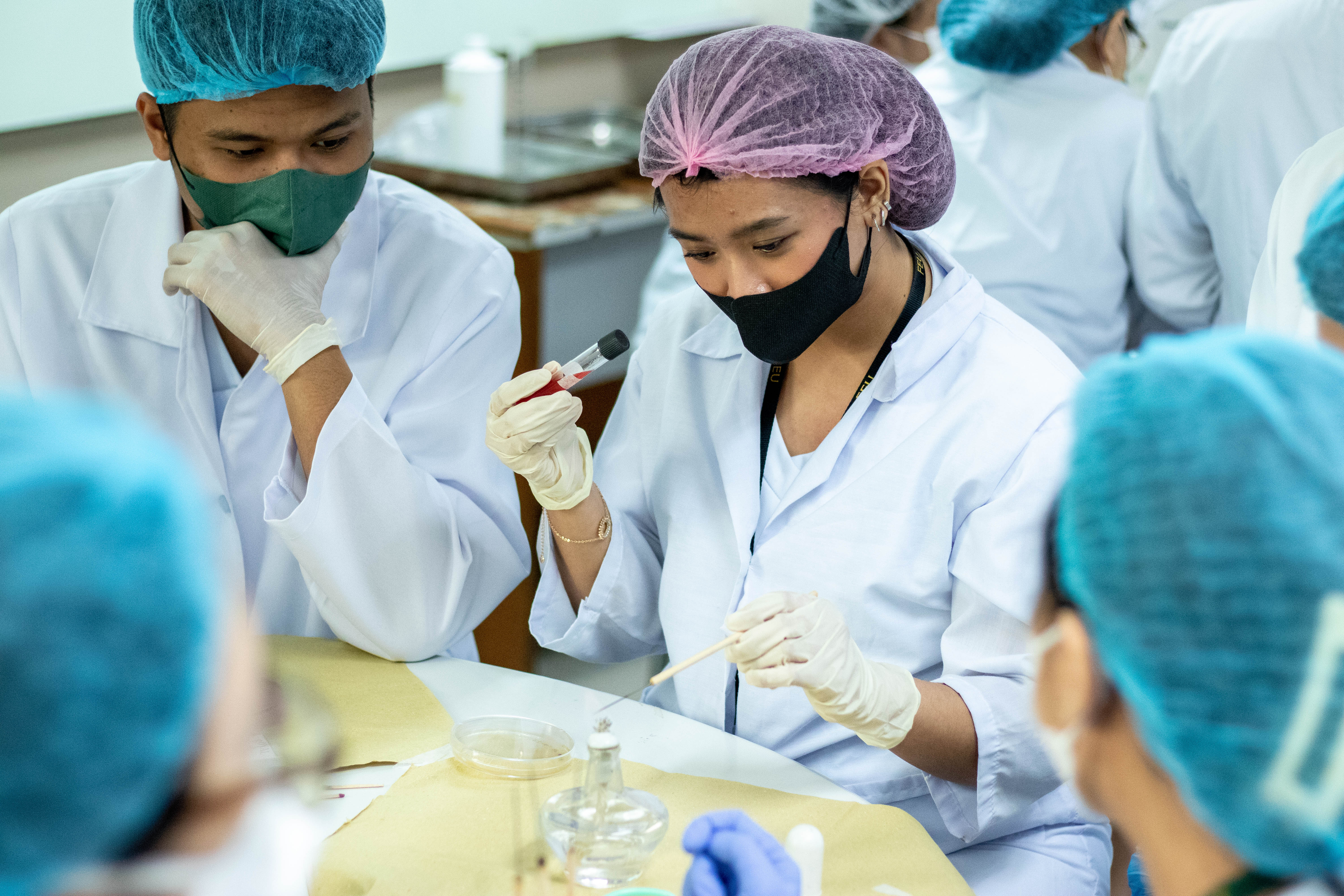Future chemists, chemistry educators, and graduate students can all benefit from the extensive instruction provided by the BS in Chemistry program. It includes several delivery methods, evaluation techniques, and teaching-learning approaches.
Program Curriculum
Students must enroll in General Education (GE) courses during the first two years of the BS in Chemistry program to develop higher-order analytical abilities and critical thinking to become proficient in both independent and collaborative study. A university-wide initiative, the GE curriculum uses liberal arts to get students ready for advanced programming, specialized training, and mathematical research later in the degree. Basic courses in chemistry and mathematical theories are also offered during these years. These foundational courses aim to lay the groundwork for important ideas and fundamental concepts in mathematics and chemistry. Additionally, the students are exposed to practical applications of chemistry in a real-world setting through the internship. It also exposes students to real-world industry settings in which technical resources are used to build solutions that benefit enterprises. This course offers pertinent technological knowledge and best practices that are necessary for any field utilizing chemical industry technologies. Those who complete this training will have the essential abilities needed to become proficient chemists after they graduate. Moreover, there is a research colloquium where students present their results on pertinent chemical and mathematical theories. Students can use this as a forum to discuss possible research topics or discoveries from their current projects.
Teaching-Learning Approaches
The BS in Chemistry program utilizes different teaching-learning approaches tailored to address student needs and groom them as lifelong learners and experts in the field of data science and information technology. These approaches include the following:
a. Student-centered learning
In line with the university’s learning paradigm, the BS in Chemistry program employs dynamic and collaborative work that encourages active learning among our students. These include computer laboratory activities, project supervision, oral presentations, and off-campus engagements, among others.
b. Didactic approach
The program understands the essence of honing the students’ theoretical knowledge in mathematics and its related applied disciplines, which is made possible through lectures, discussions, and presentations.
c. Interdisciplinary approach
The professional courses under the BS in Chemistry program enable students to understand and implement the interdisciplinary nature of chemistry through its technological applications in any scientific field. At the same time, students are immersed in humanities and social science disciplines through the GE curriculum.
d. Blended learning
The curriculum makes use of self-study modules, video presentations, online simulations, online virtual classrooms, and other reliable learning tools in order to keep up with contemporary innovations. The university facilitates this form of delivery with the help of Canvas, a top-notch learning management system.
e. Problem-based learning
The program makes use of situational analysis and problem-solving tools in enhancing critical thinking skills among its students.
f. Research-based approach
The BS in Chemistry program, which places a strong emphasis on modern technological advancements, encourages its students to grow in their areas of interest and pursue research projects through papers and presentations while they are enrolled. This is intended to improve their capacity for critical thought as well as keep them up-to-date on the most recent developments in the industry sector.
g. Assessment and Research
A wide range of assessment activities tailored to the needs of the students are used in the BS in Chemistry program. By using academic freedom, educators and learners can freely discuss the assignments for each course. Instructors are also urged to create pertinent formative tests designed to get students ready for final summative exams. Problem sets, summative exams, machine problems, software projects, presentations, and machine issues are examples of assessment tools and procedures. Research is an essential component of both courses since, to graduate from the program, students must also successfully defend their theses and present their work in an effective manner.
h. Internship
Students must complete 200 internship hours with our industry partners and government agencies. These partners have existing memoranda of agreement (MOAs) with either the University or the Institute of Arts and Sciences.
